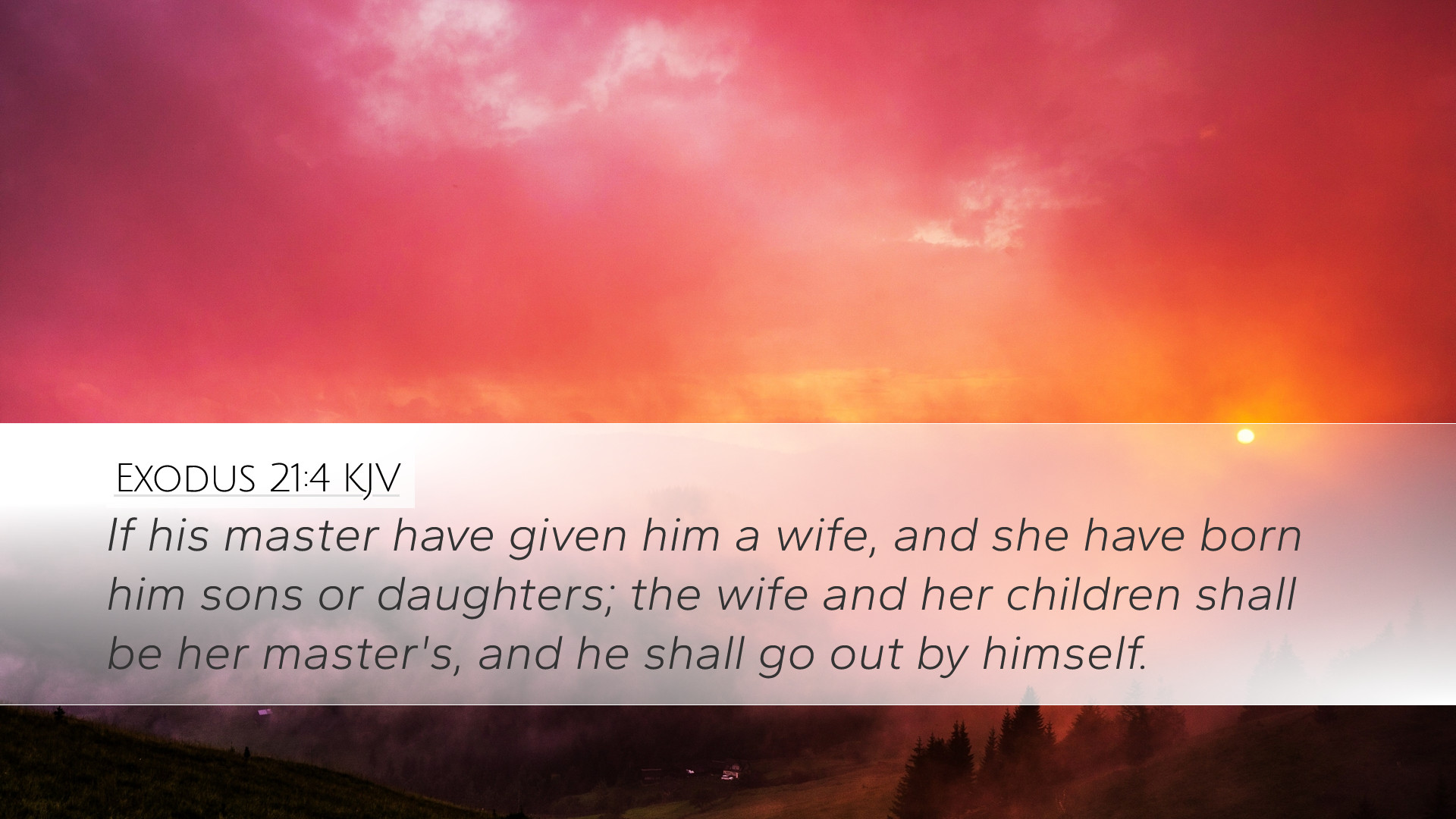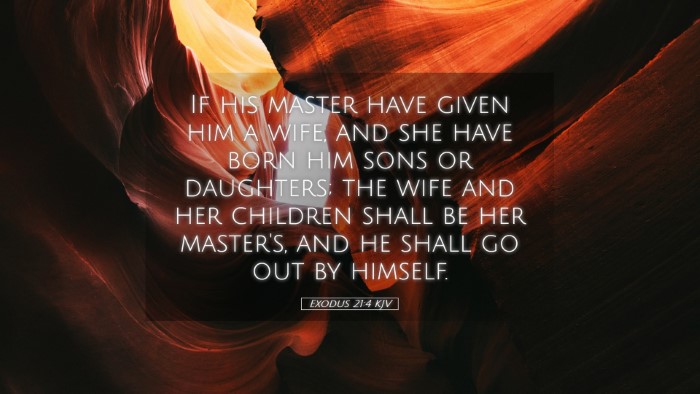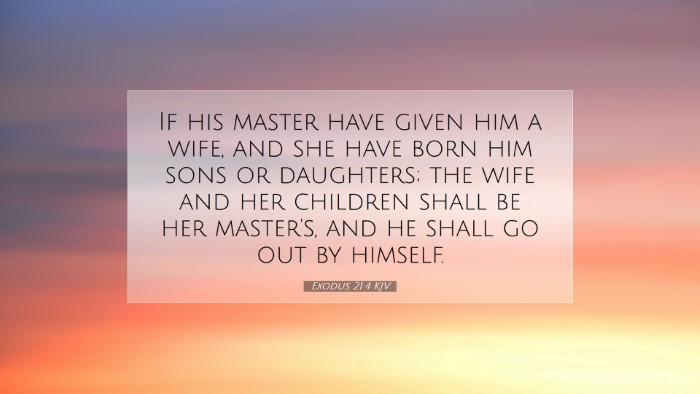Exodus 21:4 - Commentary and Analysis
Verse: "If his master have given him a wife, and she have borne him sons or daughters; the wife and her children shall be her master's, and he shall go out by himself."
Introduction
This verse falls within the broader context of the laws concerning Hebrew servants and serves as a crucial part of Israel's social justice regulations. The implications of this verse extend beyond the immediate instruction and delve into theological, sociological, and ethical realms.
Historical Context
The cultural backdrop of ancient Hebrew society establishes a framework in which servitude was common. In this context, laws regarding servants were necessary for maintaining social order and ensuring humane treatment. The verse specifically addresses the rights of a servant who has been married by his master.
Commentary Insights
- Matthew Henry:
Matthew Henry emphasizes the legal structure that God established for the Israelites, framing this verse within the broader idea of justice and mercy. He notes that while the master has ownership over the wife and children, the servant retains his independence upon leaving, which demonstrates a balance of rights and responsibilities.
- Albert Barnes:
Barnes elucidates that this law served practical purposes; it aimed to protect the interests of the family unit generated during servitude. He points out that the dynamics of marriage in servitude complicate the idea of ownership, suggesting that the master’s authority does not extend beyond the immediate family of the servant.
- Adam Clarke:
Clarke offers insight into the implications for the servant. He reflects on the emotional strain that may arise from leaving a spouse and children, thereby hinting at the communal and familial ties that may have formed during the servant's time in the household. His commentary urges readers to consider the welfare of the family in situations of social contract.
Theological Reflections
This verse presents a tension between loyalty to one’s family and the reality of societal structures. The master’s authority over the servant’s family raises profound questions about ownership and love. The regulation, therefore, is not simply legal but deeply relational, prompting thoughts about God’s view on familial bonds and love amidst societal frameworks.
Ethical Implications
From an ethical standpoint, this scripture forces readers to confront the treatment of individuals within systems of power. Just as the master must uphold the rights of the servant, modern applications suggest a need for those in positions of authority to ensure justice and care within their domains.
Practical Application
For pastors, students, theologians, and Bible scholars, this verse can serve as a springboard for discussions about justice, mercy, and community. The principles found in Exodus 21:4 echo throughout scripture, urging modern readers to advocate for fair treatment and compassionate relationships in various societal structures.
Conclusion
Exodus 21:4 invites deep contemplation about the balance of power, the sanctity of family life, and God’s overarching design for human relationships. It challenges readers to think critically about the interplay of law and love, reminding them of the importance of community values in all aspects of life.


